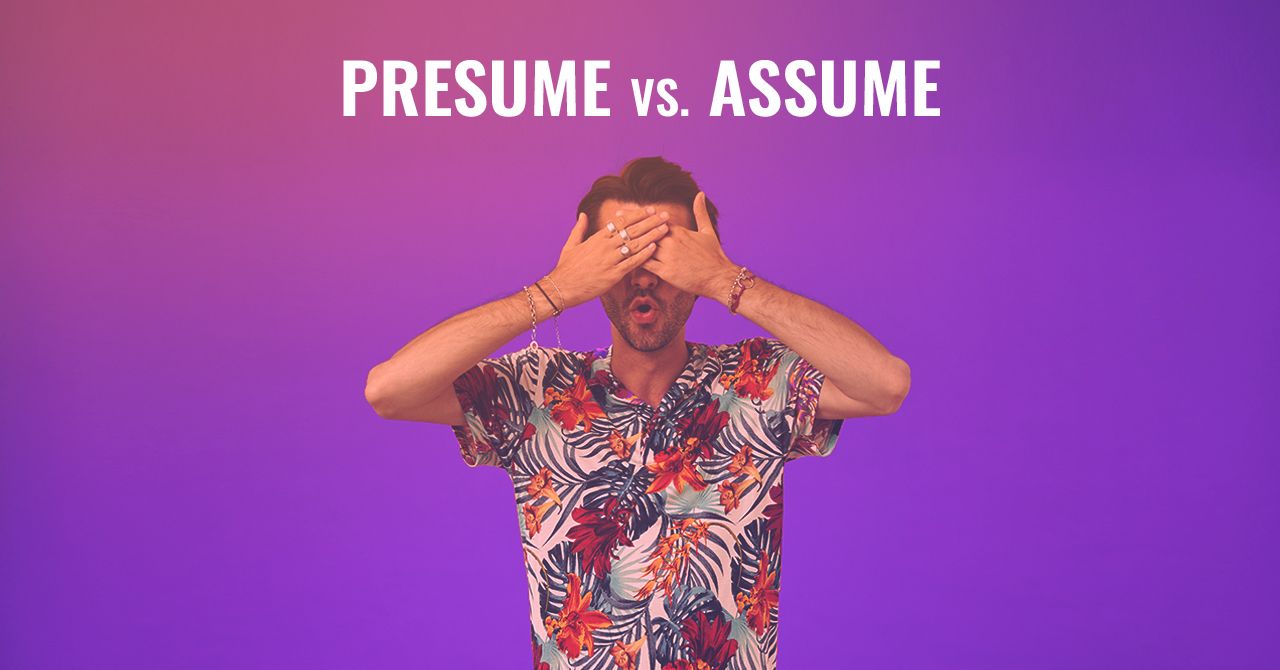
How to know when to use the verbs presume vs. assume
Presume and assume are both verbs with similar meanings. They can both be used instead of the verb “to suppose” but cannot be used in the same contexts.

Get a FREE guide!
Want to sound like a native English speaker?
Get our free PDF with top tips that work.

Check your email!
Presume versus assume
Although they are not synonyms, presume and assume are both verbs with similar meanings. They can both be used instead of the verb “to suppose” but cannot be used in the same contexts.
The difference between presume and assume
To presume means to suppose based on probability. It means that you make a presumption that you believe something to be true because it is highly likely. To illustrate this, the following examples contain a reason to explain why the subject concluded, even though they are not 100% sure.
Examples using “presume”
When I saw the puddle, I presumed it had been raining.
It was so late. I presumed you weren’t coming.
He was wearing handcuffs, so we presumed he had been arrested.
A: “Are your parents home?” B: “I presume s. Their car is outside.”
There are paparazzi in the hotel lobby. I presume there’s a celebrity staying there.
While presumptions are made without certainty, there is still a high probability. On the contrary, there is no proof to back it up when an assumption is made. The verb assume means to suppose something is the case without questioning it and without any evidence.
Examples using “assume”
I assumed everyone I invited would come to my party
If you don’t reply to her message, she will automatically assume you’re mad at her
He hadn’t asked about the salary, but he assumed he would be paid more than in his previous job
When to use presume or assume?
When deciding whether presume is the appropriate verb to use in a sentence, or if what you mean is assume, then you must ask yourself whether or not there is any proof that your supposition is correct. If there is a high probability, use presume, and if there is no proof whatsoever, use assume. In the following examples, you can see why each verb is used.
- I saw you hanging out last weekend, so I presumed you were friends
- You’re from the same village, so I assumed you were friends
In the first example, two people hanging out is a valid reason to think they might be friends. However, in the second example, being from the same area is not proof that two people know each other, never mind that they are friends.
- He wasn’t arrested, so I presume he’s not a suspect
- He’s a nice guy, so I assume he’s not a suspect
The former sentence indicates that the police have no reason to arrest the man in question, implying that he is not a suspect. On the other hand, the latter is an assumption entirely based on personal opinion, without proof, as it fails to consider the facts about the situation or crime.
















